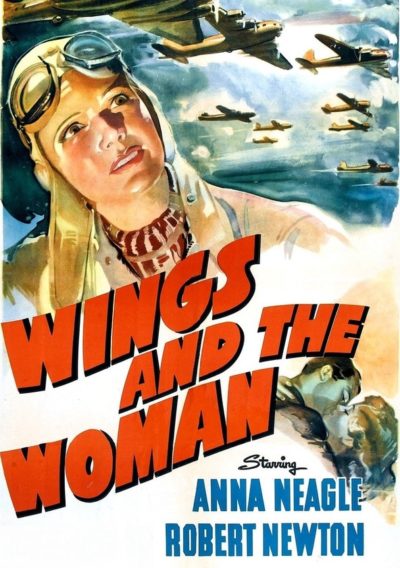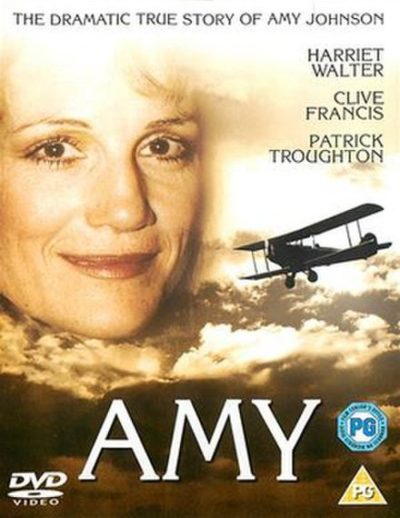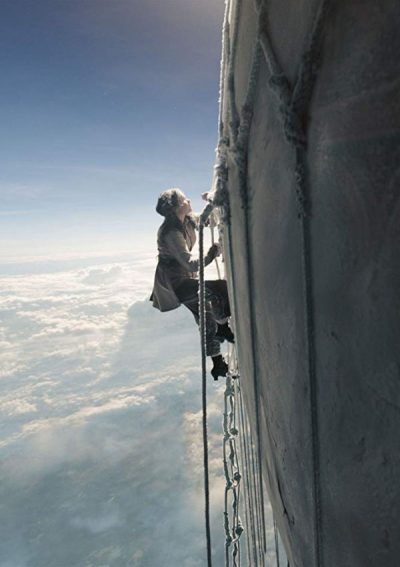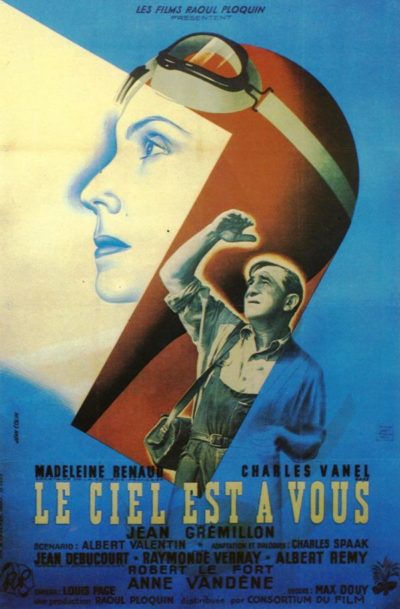★★½
“Puts the plain in aeroplane.”
 This bio-pic of aviator Amy Johnson appeared in British cinemas a scant eighteen months after she disappeared over the River Thames. That put its release squarely in the middle of World War II, and explains its nature which, in the later stages, could certainly be called propaganda. There’s not many other ways to explain pointed lines like “Our great sailors won the freedom of the seas. And it’s up to us to win the freedom of the skies. This is first said during a speech given by Johnson in Australia, then repeated at the end, over a rousing montage of military marching and flying. I almost expected it to end with, “Do you want to know more?”
This bio-pic of aviator Amy Johnson appeared in British cinemas a scant eighteen months after she disappeared over the River Thames. That put its release squarely in the middle of World War II, and explains its nature which, in the later stages, could certainly be called propaganda. There’s not many other ways to explain pointed lines like “Our great sailors won the freedom of the seas. And it’s up to us to win the freedom of the skies. This is first said during a speech given by Johnson in Australia, then repeated at the end, over a rousing montage of military marching and flying. I almost expected it to end with, “Do you want to know more?”
From the start, the film does a decent job of depicting Johnson (Neagle) as a likable heroine, who refuses to bow to convention – she’s first seen rebelling against the straw hat that’s part of her school uniform. We then follow her through university, though the degree apparently only qualifies her for jobs in a haberdashery or as a secretary (must have been a gender studies…). Unhappy with these dead-end occupations, she takes up flying, earning her pilot’s license and buying her own plane. It’s about here that the film really hits trouble, because director Wilson has no idea of how to convey the thrill of free flight. Endless series of newspaper headlines, ticker tapes and cheering crowds is about all we get, along with obvious rear-projection shots of Amy looking slightly concerned in the cockpit.
It’s almost a relief when the romance kicks in, represented by fellow pilot Jim Mollison (Newtron), who woos Amy while looking to set flight records of his own. Problem is, he’s a bit of a dick: quite why Amy falls for him is never clear. It’s clearly a mistake, with his drinking, womanising (or as close as they could depict in the forties!) and resentment at her greater fame and desire for independence eventually dooming the marriage – in another of those newspaper headlines. However, there is one decent sequence, when the husband and wife fly as a pair from Britain to America, largely through dense fog. This is edited nicely and, in contrast to all other flights, does generate some tension.
The bland approach includes Johnson’s final mission, depicted here as her running out of fuel while seeking somewhere to land in fog, bailing out, and drowning in the river. Cue the montage mentioned above, though the film does redeem itself with a final caption, worth repeating in full. “To all the Amy Johnsons of today, who have fought and won the battle of the straw hat – who have driven through centuries of convention – who have abandoned the slogan ‘safety first’ in their fight for freedom from fear – from want – from persecution – we dedicate this film.” It’s an honourable thought, considerably deeper and more well-executed than something which generally feels like it was rushed out, without much effort put into it.
Dir: Herbert Wilcox
Star: Anna Neagle, Robert Newton, Edward Chapman, Joan Kemp-Welch
a.k.a. Wings and the Woman





 It’s interesting to compare the approach taken in this biopic of aviation heroine Amy Johnson, made in 1984, with the one over 40 years earlier (and shortly after her death) in
It’s interesting to compare the approach taken in this biopic of aviation heroine Amy Johnson, made in 1984, with the one over 40 years earlier (and shortly after her death) in  I was genuinely stoked when I got to the end of this one, which details the derring-do of 19th-century pioneers James Glaisher (Redmayne) and Amelia Wren (Jones). The former is a scientist in the fledgling field of meteorology, who wants to obtain data from the upper atmosphere. The latter is a balloon pilot, carrying on despite the death of her husband on a previous flight. Together, they team up, to fly higher than any person had ever gone before. Indeed, further than even they wanted to go, as a frozen valve prevents them from descending when they need to do so. With Glaisher out of commission through oxygen deprivation, it’s up to Wren to climb, by herself, up the outside of the balloon, in order to reach the top and clear the valve.
I was genuinely stoked when I got to the end of this one, which details the derring-do of 19th-century pioneers James Glaisher (Redmayne) and Amelia Wren (Jones). The former is a scientist in the fledgling field of meteorology, who wants to obtain data from the upper atmosphere. The latter is a balloon pilot, carrying on despite the death of her husband on a previous flight. Together, they team up, to fly higher than any person had ever gone before. Indeed, further than even they wanted to go, as a frozen valve prevents them from descending when they need to do so. With Glaisher out of commission through oxygen deprivation, it’s up to Wren to climb, by herself, up the outside of the balloon, in order to reach the top and clear the valve.